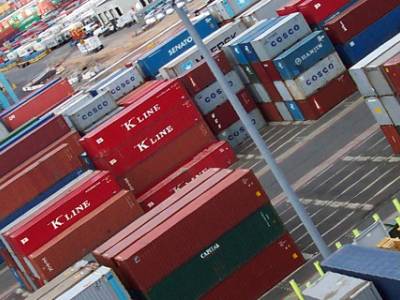I'm starting the process of researching MBA programs for fall 2022 intake. I am an American citizen but I live abroad in the Middle East and I want to return to the US to do my MBA there. I work in logistics (7 years of global experience) and my overall goal is to work in logistics or strategy consulting. I have shortlisted the following schools:
Michigan (Ross)
Purdue
Penn State (Smeal)
Carnegie Mellon
MIT (Sloan) - reach
A know that a lot of this is dependent on my GMAT score (I aim to at least break 700), but I was hoping to get feedback on the above schools and their suitability for my career goals. Also, if there are any other suggestions, I would love to hear them! Thanks in advance!
US MBA Programs
Posted Apr 28, 2021 16:28
Michigan (Ross)
Purdue
Penn State (Smeal)
Carnegie Mellon
MIT (Sloan) - reach
A know that a lot of this is dependent on my GMAT score (I aim to at least break 700), but I was hoping to get feedback on the above schools and their suitability for my career goals. Also, if there are any other suggestions, I would love to hear them! Thanks in advance!
Posted May 17, 2021 20:16
I suggest refining your career goal: 'strategy consulting' is a rather broad field, depending on what kind of consulting you want to do and what kind of firm you want to work in. Bain, Boston Consulting, and McKinsey typically have the highest profile among MBA students - and these firms tend to recruit from a narrow range of very well ranked business schools. But beyond those three firms that there's a large range of other firms / strategy specialities. A firm like EY or even firms in the Hackett Group tier might be reasonable for you to look at, given your background.
I suggest scouring LinkedIn and poking around in some of the firms you would be interested in working for (and which suit your goals), and then working backwards and seeing where these employees did their MBAs. My feeling is that you have a pretty good shortlist, but there might be some other options that come up using the LinkedIn approach.
Related Business Schools
Other Related Content
LinkedIn Launches MBA Rankings of US Business Schools
News Jan 11, 2024
Careers in Supply Chain for MBA Grads
Article Oct 18, 2018
A function in flux needs managers who can combine leadership with tech skills such as data analytics
Top Business Schools for Supply Chain Management
Top List
Effective supply chain management (SCM) practices have become essential to firms in many industries, particularly since globalization has widened the geographic distances between suppliers, manufacturers, and customers
Hot Discussions
-
Online MBA
Nov 12, 2024 3,223 26 -
UPF-BSM vs EAE Business School vs UAB, seeking insights over potential business schools in Barcelona, Spain.
Nov 07, 2024 165 12 -
Kozminski vs SGH
Oct 26, 2024 142 10 -
accreditation of french business schools
Oct 23, 2024 953 9 -
Question about some Masters- ESCP or EDHEC or Cranfield.
Oct 30, 2024 124 7 -
"Late Bloomer" with average academics/experience, but 720 GMAT and Polyglot
Nov 07, 2024 101 4 -
Time management when pursuing an MBA while working
Oct 31, 2024 76 4 -
OHM MBA in Germany
Nov 06, 2024 76 4

-94c63.png)




